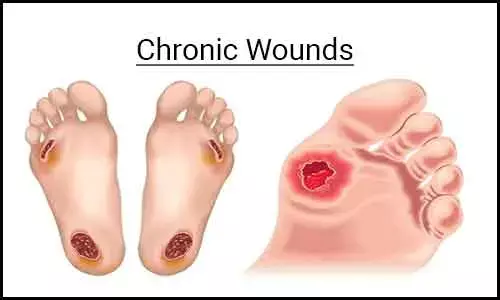- Home
- Medical news & Guidelines
- Anesthesiology
- Cardiology and CTVS
- Critical Care
- Dentistry
- Dermatology
- Diabetes and Endocrinology
- ENT
- Gastroenterology
- Medicine
- Nephrology
- Neurology
- Obstretics-Gynaecology
- Oncology
- Ophthalmology
- Orthopaedics
- Pediatrics-Neonatology
- Psychiatry
- Pulmonology
- Radiology
- Surgery
- Urology
- Laboratory Medicine
- Diet
- Nursing
- Paramedical
- Physiotherapy
- Health news
- Fact Check
- Bone Health Fact Check
- Brain Health Fact Check
- Cancer Related Fact Check
- Child Care Fact Check
- Dental and oral health fact check
- Diabetes and metabolic health fact check
- Diet and Nutrition Fact Check
- Eye and ENT Care Fact Check
- Fitness fact check
- Gut health fact check
- Heart health fact check
- Kidney health fact check
- Medical education fact check
- Men's health fact check
- Respiratory fact check
- Skin and hair care fact check
- Vaccine and Immunization fact check
- Women's health fact check
- AYUSH
- State News
- Andaman and Nicobar Islands
- Andhra Pradesh
- Arunachal Pradesh
- Assam
- Bihar
- Chandigarh
- Chattisgarh
- Dadra and Nagar Haveli
- Daman and Diu
- Delhi
- Goa
- Gujarat
- Haryana
- Himachal Pradesh
- Jammu & Kashmir
- Jharkhand
- Karnataka
- Kerala
- Ladakh
- Lakshadweep
- Madhya Pradesh
- Maharashtra
- Manipur
- Meghalaya
- Mizoram
- Nagaland
- Odisha
- Puducherry
- Punjab
- Rajasthan
- Sikkim
- Tamil Nadu
- Telangana
- Tripura
- Uttar Pradesh
- Uttrakhand
- West Bengal
- Medical Education
- Industry
'Smart' bandages may heal Chronic, non-healing wounds

Researchers have developed novel 'Smart' bandages that may heal even chronic wounds.
Chronic and non-healing wounds—one of the most devastating complications of diabetes and the leading cause of limb amputation—affects millions of Americans each year. Due to the complex nature of these wounds, proper clinical treatment has been limited.
For the first time, faculty in the biomedical engineering department—a shared department with the UConn School of Dental Medicine, School of Medicine, and School of Engineering—designed a wirelessly-controlled, or "smart," bandage and corresponding smartphone-sized platform that can precisely deliver different medications to the wound with independent dosing.
This bandage, developed by Dr. Ali Tamayol, associate professor, and researchers from the University of Nebraska-Lincoln and Harvard Medical School, is equipped with miniature needles that can be controlled wirelessly—allowing the drugs to be programmed by care providers without even visiting the patient.
"This is an important step in engineering advanced bandages that can facilitate the healing of hard to treat wounds. The bandage does not need to be changed continuously," says Tamayol.
Given the range of processes necessary of wound healing, different medications are needed at different stages of tissue regeneration. The bandage—a wearable device—can deliver medicine with minimal invasiveness.
With the platform, the provider can wirelessly control the release of multiple drugs delivered through the miniature needles. These needles are able to penetrate into deeper layers of the wound bed with minimal pain and inflammation. This method proved to be more effective for wound closure and hair growth as compared to the topical administration of drugs and is also minimally invasive.
The research, recently published in the Advanced Functional Materials journal, was first conducted on cells and later on diabetic mice with full-thickness skin injury. With this technology, the mice showed signs of complete healing and lack of scar formation—showing the bandages' ability to significantly improve the rate and quality of wound healing in diabetic animals.
These findings can potentially replace existing wound care systems and significantly reduce the morbidity of chronic wounds—which will change the way diabetic wounds are treated.
Tamayol recently applied for a patent for this technology.
for further references log on to:
A Wirelessly Controlled Smart Bandage with 3D‐Printed Miniaturized Needle Arrays. Advanced Functional Materials, 2020; 1905544
Dr Kamal Kant Kohli-MBBS, DTCD- a chest specialist with more than 30 years of practice and a flair for writing clinical articles, Dr Kamal Kant Kohli joined Medical Dialogues as a Chief Editor of Medical News. Besides writing articles, as an editor, he proofreads and verifies all the medical content published on Medical Dialogues including those coming from journals, studies,medical conferences,guidelines etc. Email: drkohli@medicaldialogues.in. Contact no. 011-43720751


